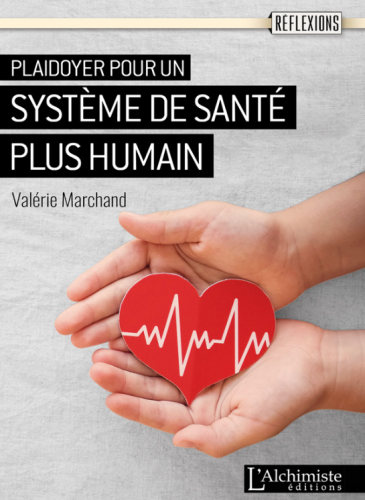
Even though our health care system has many advantages, not everything is rosy. Caregivers are asked for self-sacrifice, sacrifice and, in the end, self-forgetfulness. But they are only human, not heroes. Exposed daily to illness and death without being fully prepared for it, subject to budgetary restrictions and increasing constraints, we can no longer ignore the extreme suffering of all those involved: the medical, paramedical and personal assistance professions, and consequently the patients. The author, herself a health professional, proposes an inventory of the situation in order to identify the difficulties on which we can act to take care of the caregivers who are victims of this sick system. Thus, a more adapted and humane care practice can be developed for both the caregiver and the patient: in particular, a better capacity for resilience in stressful situations, rediscovering meaning and acting in accordance with one’s values, prevention of the risk of exhaustion, self-compassion and compassion, better listening to oneself and to others, a more complete vision of health, or the active involvement of patients
Quote & Reviews :
«In the first days of my hospital internship, without any preparation, I was pushed into the «big bath». During the visit with many interns, externs, doctors and department head, I found myself witnessing the death of a woman. The whole scene was immeasurably inhuman to her and to me as I arrived at the hospital. No one looked this woman in the eye or took her hand as she died alone, surrounded by all these embarrassed strangers.»
Even though our health care system has many advantages, not everything is rosy. Caregivers are asked for self-sacrifice, sacrifice and, in the end, self-forgetfulness. But they are only human, not heroes. Exposed daily to illness and death without being fully prepared for it, subject to budgetary restrictions and increasing constraints, we can no longer ignore the extreme suffering of all those involved: the medical, paramedical and personal assistance professions, and consequently the patients. The author, herself a health professional, proposes an inventory of the situation in order to identify the difficulties on which we can act to take care of the caregivers who are victims of this sick system. Thus, a more adapted and humane care practice can be developed for both the caregiver and the patient: in particular, a better capacity for resilience in stressful situations, rediscovering meaning and acting in accordance with one’s values, prevention of the risk of exhaustion, self-compassion and compassion, better listening to oneself and to others, a more complete vision of health, or the active involvement of patients
Quote & Reviews :
«In the first days of my hospital internship, without any preparation, I was pushed into the «big bath». During the visit with many interns, externs, doctors and department head, I found myself witnessing the death of a woman. The whole scene was immeasurably inhuman to her and to me as I arrived at the hospital. No one looked this woman in the eye or took her hand as she died alone, surrounded by all these embarrassed strangers.»
| Taksit Sayısı | Taksit tutarı | Genel Toplam |
|---|---|---|
| Tek Çekim | 1.500,00 | 1.500,00 |











